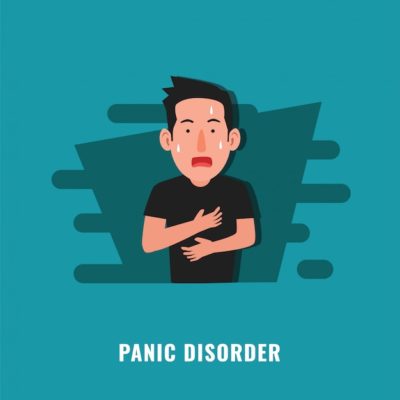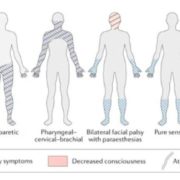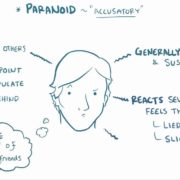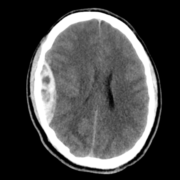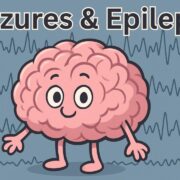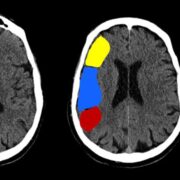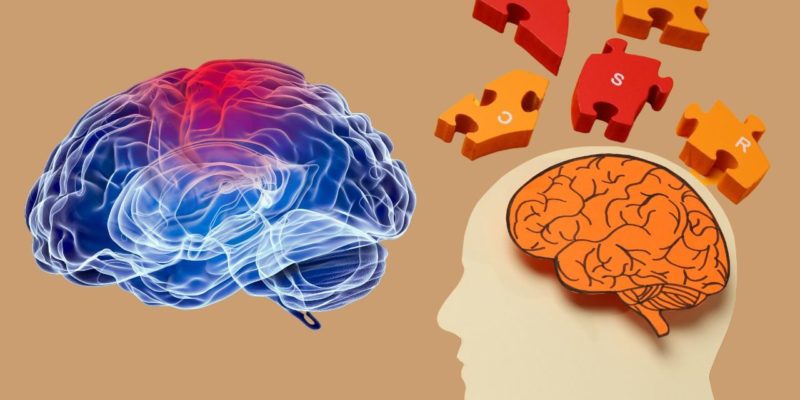
Topic: Dissociative Amnesia
Authors: Manar Lotfy, Nada Talal, Niveen Sherif, Rovan Emad
Editor: Menna Marwan
Reviewer: Ethar Hazaimeh
Keywords: Amnesia, dissociative amnesia, controversial psychiatric disorders, DSM-5, post-traumatic amnesia, and memory loss
Overview
Dissociative amnesia is among the most ambiguous and controversial psychiatric disorders. It is characterized by retrieval blockade of episodic autobiographical memories arising in the context of psychological trauma (whether known or not), with no evidence of brain injury on structural imaging. Patients experience an interruption of self. The definition of dissociative amnesia was given in the 2017 French International Classification of Diseases and Related Health Problems (CIM10) as “a disorder characterized by a retrospective gap in the memory of important personal information, generally of a traumatic or stressful nature; The individual experiences significant memory loss beyond typical forgetfulness, unrelated to substance use or medical conditions.” [1][2]
Dissociative amnesia can be classified as localized (lack of memory for a period of time), selective (lack of memory for specific parts of an event), or generalized (lack of memory for the life history and identity). The differential diagnosis of dissociative amnesia includes substance use disorder, malingering, cognitive disorder, and neurological conditions like seizure disorders and transient global amnesia. [3]
The disorder is quite diverse, as symptoms and disease progression can differ significantly. Dissociative amnesia is primarily retrograde, particularly in the domain of episodic-autobiographical memory. It is uncommon to experience anterograde dissociative amnesia without significant retrograde memory impairment. Functional neuroimaging studies of dissociative amnesia with prevailing retrograde memory impairments display adjustments within the network that sub-serve autobiographical memory. Currently, there are no evidence-based treatments available for dissociative amnesia, and there is no established framework for its rehabilitation. [2]
Epidemiology
The occurrence of dissociative amnesia varies among different countries and populations. Epidemiological studies on dissociative amnesia have been conducted in over 16 countries. However, due to differences in terminologies, case definitions, assessment methods, sample size, and selection criteria, accurate estimates of the prevalence of dissociative amnesia and fugue are hindered. Prevalence studies have shown rates of dissociative amnesia ranging from 0.2% to 7.3%. Additionally, the prevalence of dissociative amnesia is similar for both males and females.[2]
Etiology and Risk Factors
Developmental stressful childhood events such as abuse, emotional neglect, boundary violations, and boundary violations are the etiological components that result in Dissociative identity disorder (DID). Familial, societal, and cultural elements may give rise to trauma, and/or they may influence the expression of DID. Memory and the construction of self-identity are cognitive processes that appear disrupted in DID and are linked to its etiology. [4]
Premorbid risk factors for the development of dissociative amnesic conditions involve genetic vulnerabilities for dissociation, biological biasing towards increased sensitivity to stress, young age, early onset of trauma, impairments in emotional processing, traits of decreased cognitive flexibility, and repressive cognitive style, which may be partly culturally shaped. [5]
Types
Dissociative amnesia can cause a number of memory disturbances, according to the DSM-5:
- Localized amnesia (the most common type): failure to recall events that occurred within a specific time frame.
- Selective amnesia: recalls some but not all aspects of a specific time period or traumatic event.
- Systematized amnesia refers to the phenomenon of selective memory loss for a specific category of information.
- Continuous amnesia: a condition where an individual experiences memory loss for every new event as it occurs.
- Generalized amnesia (rare): sudden loss of memory for one’s entire life. [6]
Signs and Symptoms
The primary symptom is severe memory loss that cannot be explained by a medical condition. Patients are unable to recall information about themselves, events, or people in their lives, particularly during a traumatic period. Dissociative amnesia can be associated with a specific time, such as intense combat, or it can be a complete loss of memory about self. It may occasionally entail travel or a confused wandering away from life (dissociative fugue). Amnesia usually occurs suddenly and can last minutes, hours, months, or even years. [7]
The majority of cases of dissociative amnesia are brief. Memories frequently return abruptly and completely. Memory recovery may be triggered by something in the person’s surroundings or in therapy. Furthermore, people suffering from medical amnesia are distressed by their memory loss, whereas most people suffering from dissociative amnesia appear to be unconcerned about their amnesia. [8]
Diagnosis
According to DSM-5 diagnostic criteria, dissociative amnesia is diagnosed clinically if the following DSM-5-TR criteria are met:
- Predominant disturbance of one or more episodes of an inability to recall important personal information, commonly of a traumatic or stressful nature, that is extensive to be by ordinary forgetfulness.
- The disturbance does not occur during the course of dissociative identity disorder, posttraumatic stress disorder (PTSD), acute stress disorder, or somatization disorder and is not due to the direct physiological effects of a substance or of neurological or other general medical conditions.
- Symptoms seriously disrupt social or occupational functioning or cause significant distress. [9][10]
Treatment
Successful treatments include psychotherapies that help patients process traumatic memories and manage dissociative states. Techniques such as hypnosis have proven their worth, along with the selective use of antianxiety and antidepressant medications for comorbid conditions. Identification as well as modulation of dissociative symptoms, coupled with management of related posttraumatic syndromes, have been shown to be effective treatments. [11]
Prognosis
The clinical course is self-limited, and the short-term prognosis is positive. Memory commonly recovers fully within days, but mild residual impairment can sometimes persist for weeks. Minimum is known about the long-term prognosis. Recurrent episodes of dissipative amnesia are relatively uncommon but can certainly occur through the years. [12]




